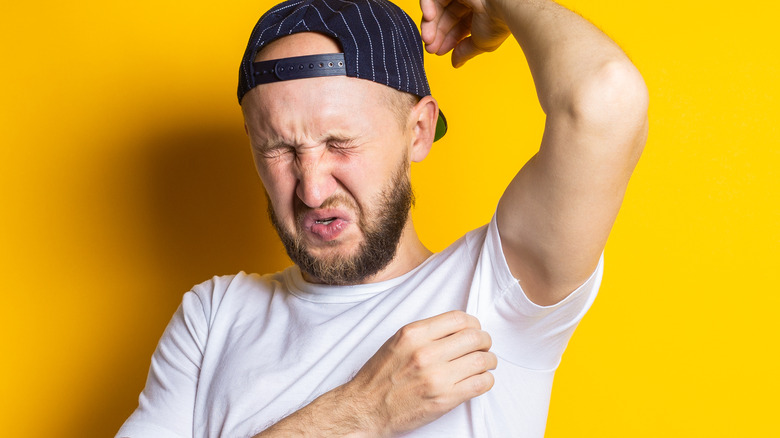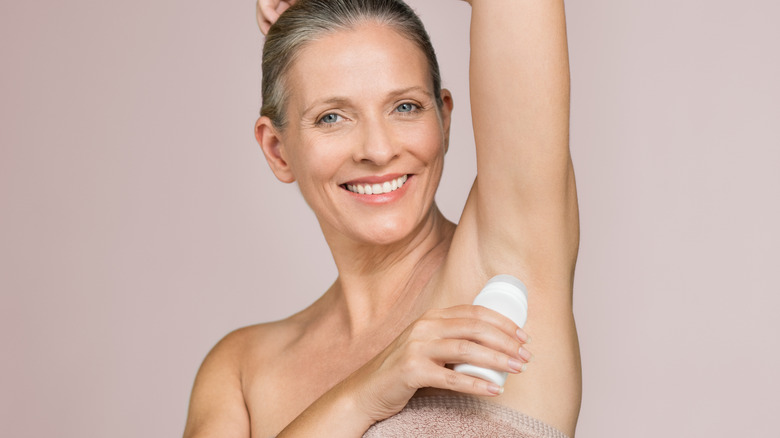Can Your Deodorant Actually Stop Working?
Although you may be a diligent deodorant user, you may have noticed a hint of body odor has made its way through your line of defense. Don't worry — you haven't built up a tolerance. Rather, experts explain that certain bodily changes can lead to an increase in odor and sweat, leading us to believe that the product is no longer functioning as it should be (via LiveStrong).
Board-certified dermatologist, Dr. Lauren Fine, explains the function of our underarm sweat glands and the science behind B.O. She told LiveStrong, "The fluid from apocrine glands contains lipids and proteins. When those mix with bacteria on the skin, it creates smelly sweat." Deodorant operates by covering up the smell of body odor, while antiperspirant blocks the sweat glands, explains Well+Good. This prevents sweat from breaking through the skin barrier, where the natural bacteria in our armpits would otherwise feed on it. Therefore, changes in how much we sweat or changes in the amount of bacteria on our skin may be overpowering your current product. In which case, it may be time to level up.
When to switch up your deodorant products
Hormonal fluctuations, increases in stress, certain medications, and even changes in the weather can all prompt us to sweat more than usual (per Well+Good). If you notice an increase in how much you're sweating, an antiperspirant may be a better fit for you than deodorant, suggests LiveStrong. Otherwise, you may need to upgrade the strength of your current antiperspirant, which you can find printed on the label. Additionally, you can try adjusting the timing of your antiperspirant application. Dr. Fine tells LiveStrong that these products work more effectively if applied before bedtime.
However, if the culprit doesn't appear to be sweat, the scent you're picking up on may instead be due to an increase in bacteria on the skin's surface. "If there is a dry feeling but odor, then it may help to change up your deodorant scent choice for something stronger, add an antibacterial soap or lotion for a week or two to cut down on bacterial overgrowth, or consider using a mild scrub in the area to gently exfoliate any buildup of bacteria," advises Pennsylvania-based dermatologist, Dr. Erum Ilyas, at Montgomery Dermatology via PopSugar.
At the end of the day, if you're still struggling to find a deodorant or antiperspirant that meets your needs, LiveStrong suggests consulting with your doctor for proper diagnosis and treatment of any increased underarm sweating or odor.


